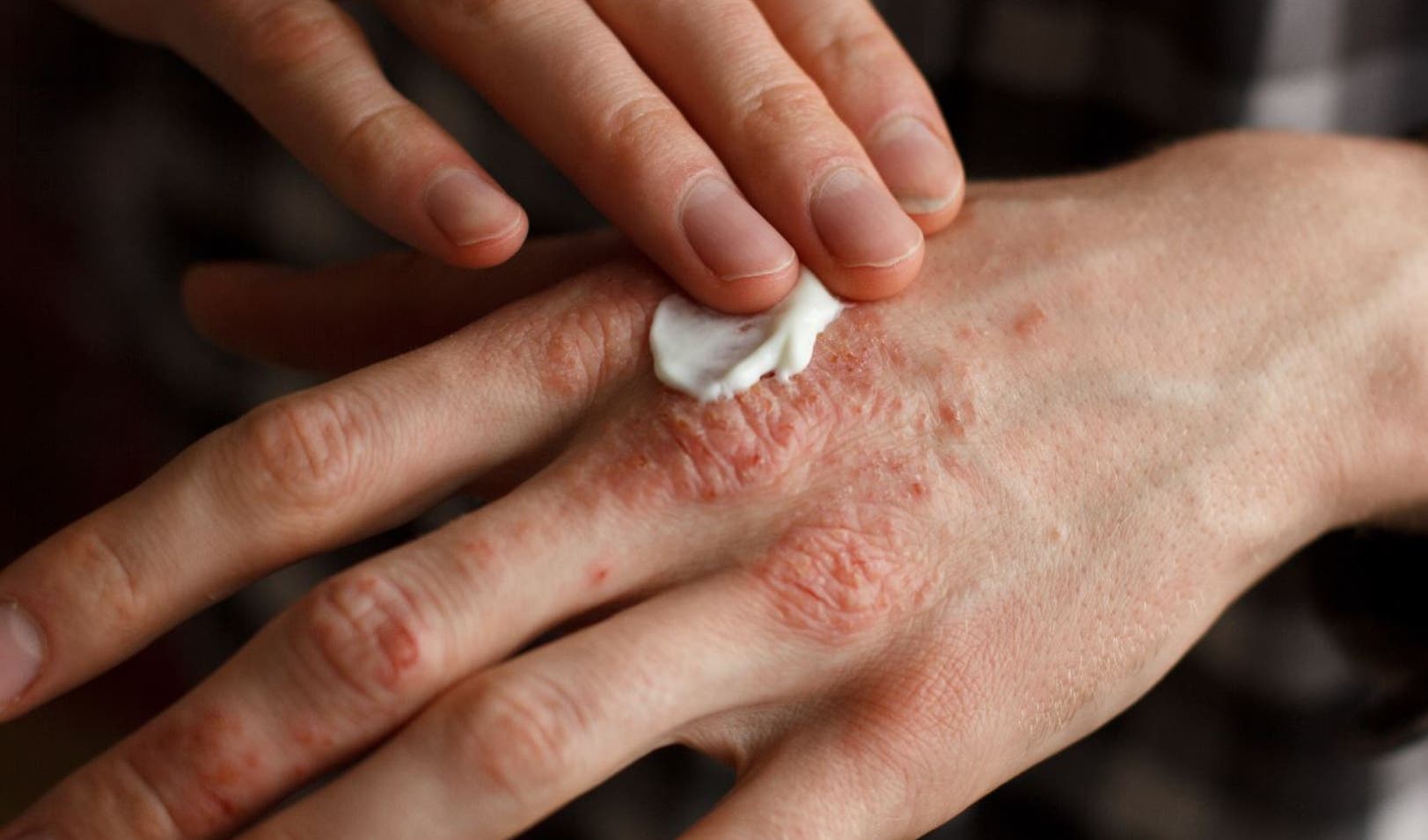Santo Dominicana.– Although the psoriasis It is a disease whose main manifestation occurs in the skin, it goes much further. This is a chronic inflammatory, non-contagious condition that can begin at any age and affects millions of people around the world.
It is estimated that more than 200,000 people live with psoriasis in the Dominican Republic; However, there are no official figures and the level of underdiagnosis is unknown.
There is also no certainty as to how many patients are under treatment or are under control.
Psoriatic disease brings with it comorbidities that deserve all the attention and includes important effects on the quality of life, mental health, and the economic and emotional stability of patients.
Psoriasis is a systemic inflammatory disease that causes accelerated cell turnover in the skin, resulting in scaly plaques and red spots that are itchy and sometimes painful.
Dr. Alina Hernández in the editorial office of the El Día Newspaper.
The doctor Alina Hernández, head of the Dermatology Service at the Doctor Francisco Moscoso Puello hospital, explained to El Día that most types of psoriasis manifest themselves in outbreaks that can last weeks or months, and that can diminish or disappear if the necessary measures are taken.
We invite you to read: Lose your fear: psoriasis is not contagious
Although psoriasis has no cure, it is possible to control it and maintain a normal quality of life.
A systemic inflammation that goes beyond the skin
Hernández highlighted that psoriasis can manifest at any time, although it is more common between 15 and 35 years of age. Factors such as stress, certain infections and some medications often trigger the appearance of lesions in people with a genetic predisposition.
“Psoriasis is caused by an immune system disorder that causes widespread inflammation throughout the body. This translates into damage to other organs, such as the heart and liver, as well as areas of the body, including the nails, palms of the hands and soles of the feet, the scalp and the skeletal system.”
This disease generates significant costs to the system due to the hospitalizations that occur in severe cases, the associated comorbidities and absenteeism from work, not only due to controls or monitoring, but also due to the effects it has on self-esteem and mental health.
Psoriasis can also lead to serious conditions such as psoriatic arthritis, cardiovascular diseases, type 2 diabetes and obesity. This, together with the mental health problems generated by stigmatization and the high emotional burden, leads many patients to isolate themselves and even be absent from their jobs, generating episodes of anxiety and depression.

According to a publication from the National Institute of Health, the 48% of patients report difficulty sleeping, 36% have problems using their hands, 35% experience lack of energy for social activities, and 29% reports problems in their sexual activity.
Likewise, patients with lesions in the palms of the feet experience pain when walking or standing.
Psoriasis is a disease that often does not receive the attention it deserves. This is a systemic, chronic and autoimmune condition, with a high economic, social and emotional cost.
It requires a multidisciplinary approach, an individualized treatment plan and a commitment from the patient to ensure adherence to their therapy and attend check-ups.
It also requires the attention of health systems, since it is known that the interruption of treatment can have serious consequences on the health of patients, which also denies them the possibility of living a normal life, said dermatologist Alina Hernández.

















